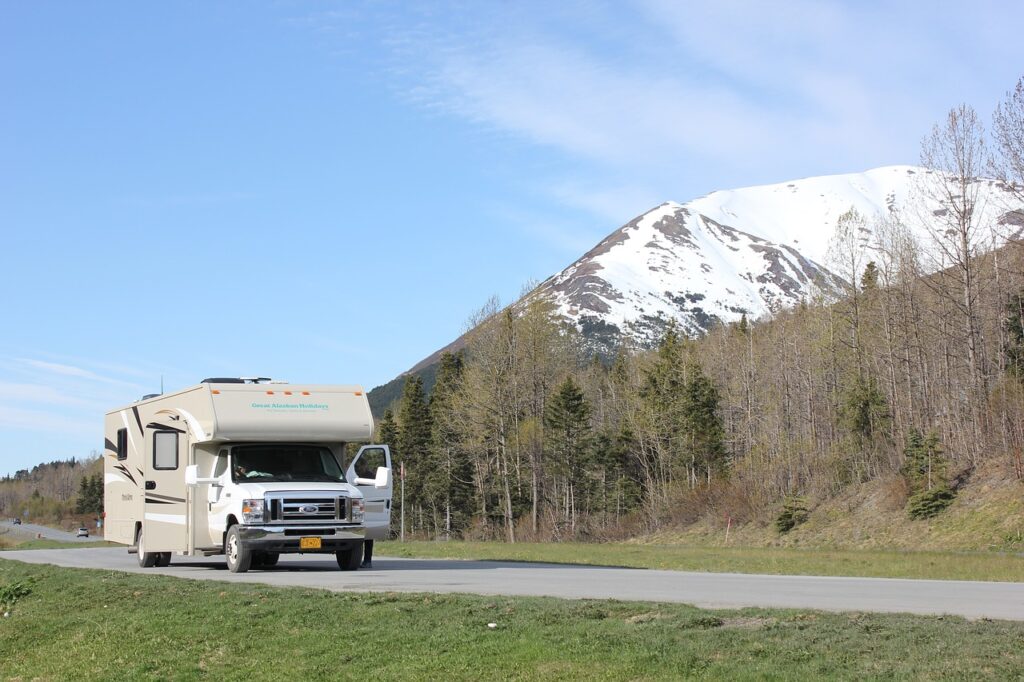RVs have a far more complex electrical circuitry than normal vehicles. This is because RVs serve two purposes – a vehicle, plus a home. So from the refrigerator to air conditioning, it has to constantly supply electricity while on the move and when at a halt. Besides, irrespective of having the latest model or a second hand one, electrical problems are certain to occur, one day or another.
The reason that you must stay aware of all the electrical parts of an RV is that more than often you may face an electric fault at a place where it will be hard to find an electrician. In that scenario, you’ll have to troubleshoot and fix the problem yourself.
A usual RV is powered with three electrical systems.
1. House 120 V system
2. RV 12V system
3. Chassis 12V system
Table of Contents
Here are a few things that you must check if you are facing the respective electrical issues.
#1. RV 12V System
The 12V system provides power to all the 12V appliances. It contains a series of deep cycle batteries along with a converter that converts the power into 12 volts.
Whenever a fault occurs in the working of electric trailer jack, propane detectors, power up lights, slide-outs, circuit board, etc., you must check the 12V System. Further, you must get a voltmeter and check if the batteries need replacement.
#2. House 120V System
Just like the name suggests, the House 12V System is responsible for the household equipment. It powers your refrigerators, air conditioner, microwave, heater, etc. The House 120V System normally gets faulty when you install a new appliance. Firstly, before installing a new device check for its compatibility with your House 120V System. Conversely, if there’s a fault in a newly installed device, you know what needs repair.
#3. Fuses and Breakers
Just like in residential accommodation, the most common culprit behind an electric failure in an RV is the fuses. Naturally, fuses and power breakers are the first thing to look for. If it is really the culprit, you’ll have to change the fuse. You must keep a stock of spare fuses on your trips, and see that they are of the right voltage. The voltage can be easily confirmed, as they come color-coded. For instance, 30A is green, 20A is yellow, 10A is red, etc.
Albeit, before changing the fuse, unplug all the electric systems connected to the breaker and reset the settings to default. Do not think of replacing a smaller fuse with that of higher capacity, it doesn’t work like this.
#4. Solar Panels
Solar panels are prone to constant wear and tear since they are placed outside on the roof of an RV. Besides, since the RV is on a constant roll, the solar panels are exposed to dust, dirt, and water.
It’s a bit hard to conclude that a problem is in your solar panels. Albeit, after you check all other electrical circuits and appliances, check your solar panels as well. However, you could refer to a manual to cross-check all the connections, but technical expertise might be required.
#5. External Power Supply
If you are unable to recharge the batteries of your RV through an external source or it short circuits, the first step must be to check your battery systems. In case, they are in perfect condition, the problem might be in the external power supply.
The best way to be sure is to connect your RV to a different power source and see if the problem persists.
#6. Electrical Overload
Sometimes, when RVing, we tend to forget that we are in a recreational vehicle and not a full-fledged house. Overload occurs when a number of electrical appliances are running simultaneously.
So whenever you suffer a complete blackout, it is safe to assume that you overburdened your electric system. As a caution, you must not run high energy consuming appliances at once, like microwaves, water heaters, etc.
Turn on devices only when you have to use them. Saving power will let you travel for longer distances without the need for plugging into a stationary power source.
#7. Extensive Toolkit
Ensure that you have a cool and complete toolbox. All knowledge and no tool will leave you helpless in the middle of nowhere. Extra fuses, appliance manuals, spare wires, etc are a must in the toolkit of any RVer.
Extra Tips:
- Whenever there’s a power-related failure in your RV, you must check the following in the same order. Tripping Area > Fuses > Power Area > Power Reset
- An electric flow in the wrong place can cause short circuits, fires, minor appliance explosions, and even injuries. So you must also ensure to have proper safety equipment in a place like electrician gloves, fire extinguishers, etc. Also, be cautious while using your appliances and look out for problems like overload or incorrect usage of appliances.
- Make sure that you plug in your device’s inappropriate power outlets to avoid outages. Check for power consumption at the time you purchase an appliance.
- Every time you have to plug into an external power source, first do a quick check using a voltmeter, to ensure all is well.
Wrapping up!
Being a beginner, you must be aware of all the different components of your RV. So take out time to read some more blogs and manuals and get acquainted with all that your RV is fitted with. Playing with electricity is only a fool’s job. You have to be a hacker and troubleshoot through your circuiting problems.
You got this!
Alex is fascinated with “understanding” people. It’s actually what drives everything he does. He believes in a thoughtful exploration of how you shape your thoughts, experience of the world.

